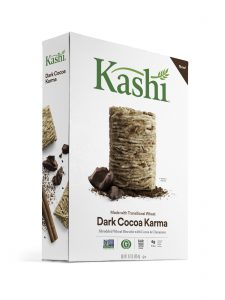Transitional farming gains traction, as organic consumers prioritize ecosystems
By vast
Published: October 4, 2018
Category: Organic News, The Organic & Non-GMO Report Newsletter
The Hartman Group’s Organic and Natural 2018 report sheds new light on consumer food attitudes. Core consumers seek an idealized notion of farming—going beyond chemicals in food, to embrace strong ecosystems, biodynamic and sustainable farming, and farmers as stewards.

Kashi cereal made from transitional wheat
While “humanely raised,” “hormone-free,” and “organic” remain important descriptors, a new label, Certified Transitional, is gaining popularity. With only one percent of U.S. acres certified organic, the Certified Transitional label arose in 2016 to measure organic compliance during the required three-year switchover period to official “organic” status.
Awareness of transitional farming has grown from 13 percent in 2016 to 40 percent in 2018—despite confusion. Lack of understanding of the label, questions over health and safety of transitional crops (are the health benefits there?), and confusion from yet “another certification” are factors.
Vertical farming—smart use of technology, space, and transportation—is also getting attention, though some say it misses the focus on sustainable land use and soil health.
Organic and Natural 2018 predicts organic will remain the gold standard for the foreseeable future, and advises keeping a close eye on preferences of organic consumers.
Source: The Hartman Group
To view full article, visit:
https://www.hartman-group.com/hartbeat/763/is-transitional-farming-the-new-natural-








